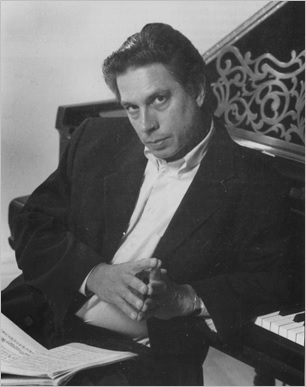
What is the biggest challenge in the film scoring industry today?
My biggest challenge is to find projects that are worthy of personal handmade work as opposed to expected Hollywood score. Every work you compose should be a handmade, individual, personal score. To find those projects is the biggest challenge, but the same applies when trying to find the right collaborators. Finding the right directors that bring you into areas where the synergy between you and that director creates something new and unexpected, as in my work with Neil Jordan and Julie.
You told me that in “Titus” you’d never heard a cue like ‘Adagio’ or its style from me before. I’m sure when one listens to “Butcher Boy” they have never heard that out of me either, or “In Dreams” for that matter. I think that if you’re working in a collaborative form it’s always great to be with people who, between the both of you, can inspire each other to get into new vistas. If Stravinsky had to spend a career on writing ‘The Rite of Spring’, that same kind of heroic, giant ballet every year, it would be a drag. He diversified his career in an amazing way and it’s the same thing within the realm of film composing. For people like me it’s great for a diversification because you use other muscles, so to speak.
Where does religion fit into your life as a composer?
I think religion fits into my life because of the sense of yearning for something which is beyond the pale. It’s that yearning for an approach to something that’s much more perfect than being human. In the works of Bach, in the great Muslim singing, in the great religious singing, the African cultures, the Asian cultures, throughout the world, the Jewish cantors, you have this sense of transcendence that’s beyond our daily existence; so there’s a sense of yearning and trying to just lift yourself out of the mud of everyday life. There’s something very religious about that; may it be the most religious music of Bach or the most exalted trumpet of Louis Armstrong, it still has that same feeling of transcendence where you are.
Is there any particular film genre that you like to score most?
The words ‘magical realism’. If you can have realism, mystical events, magical events, transforming events, all happening at the same time, perhaps this is the genre. Magical realism is actually a literary term for the type of writers that came out of South America, like Marquez. Something like “Drugstore Cowboy” is completely magical realist; “Butcher Boy” is magical realism; and in an odd way “Titus Andronicus” is magical realism. I prefer projects that have a certain ability to have a reflective process. I really like imagination; many, many layers of reality in filmmaking.
For example, let’s say you see a contemporary scene in San Francisco: people walking around with boom boxes and you see winos, rich people, all kinds of people walking around in the streets. The first reaction is to score this – especially if it’s a television program – is with the boom box music or whatever the theme song was. The fact that I had an opportunity in “Interview with the Vampire” to have a boys’ chorus, a boy soprano, singing Latin with a viola da gamba and a glass harmonica – it created an unearthly situation. Whereas you’re looking at San Francisco, but you’re also seeing these people walking down the streets – they don’t look like people any more; they just look like ghosts. It’s the exact same image, and then if you bleed in some of the boom box music over the ethereal scene, you have an amazing tapestry right there, where you have two or three different levels of reality that tell you so many different stories. That’s the difference; that’s when you get that opportunity to do that. It becomes real and magical at the same time. That’s the world that I understand and thrive most on.
What is your favorite part of the scoring process?
Working out the orchestration either by myself or with Bob Elhai. Sitting there and tediously or joyously going through every single note and saying what instrument should be playing it. What string on a violin, for example, should be playing one particular pitch. The orchestrational process on and off the scoring stage is a very, very joyous situation for me. Also, when the orchestra shows up and you’ll hear little things. You can get in there and I can run into the viola section and change some of the orchestration, or I can run into the percussion, or the trumpets. I have an ability and the knowledge to go in and change things. You hear it; it’s not on paper, it’s not in the computer, there are musicians out there with instruments. You can go out there and shake their hands, talk to them, and explain that you want this to be phrased this or that way. You can walk out to a musician to express a certain phrasing; short of having an instrument, you’ll sing it to suggest a certain bowing or tonguing to versus slurring in an instrument. Maybe it’s ‘I don’t want an entire section playing this particular passage even though I said I did. I just want a solo oboe.’ Then you listen to it and go, ‘Wow, that’s right.’ That’s when you have to be really thinking on your feet, but that’s the most enjoyable time.
What are your plans after “Titus”?
I have to revamp and work on The Green Bird and consider Grendel, the opera. There’s also the unknown in terms of film projects, which is working with Neil Jordan, Julie, and others that might emerge.